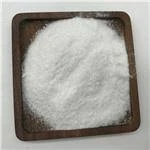Exploring 1,3-Dimethyl-6-Chlorouracil A Multifaceted Compound
1,3-Dimethyl-6-chlorouracil (DMU) is a synthetic derivative of uracil, a naturally occurring component of nucleic acids and an essential pyrimidine base. The modification of uracil in DMU, particularly the addition of two methyl groups at the 1 and 3 positions and a chlorine atom at the 6 position, brings about significant changes in its chemical properties and biological activities. This compound has attracted considerable attention in the fields of medicinal chemistry, biochemistry, and pharmaceutical development.
Chemical Structure and Properties
The unique chemical structure of DMU contributes to its varied interactions within biological systems. The presence of the methyl groups enhances its lipophilicity, allowing for better membrane permeability and influencing its bioavailability compared to its parent compound, uracil. The chlorine atom at the 6 position introduces electronegative characteristics, which can alter the compound's reactivity and interactions with other biological molecules. Understanding these properties is crucial for exploring the compound’s potential applications in therapeutic settings.
Biological Significance
DMU has been found to exhibit a variety of biological activities that make it a candidate for further research. Studies have shown its potential role as an antiviral agent, particularly against certain strains of viruses due to its ability to interfere with viral replication mechanisms. Moreover, its structural similarities with nucleobases may aid in the development of selective inhibitors that target specific pathways in pathogens.
Furthermore, DMU has attracted attention in cancer research. Its ability to inhibit the synthesis of nucleic acids in rapidly dividing cells aligns with strategies employed in chemotherapy. Preclinical studies indicate that DMU may exert cytotoxic effects on specific cancer cell lines, potentially by disrupting the normal RNA and DNA synthesis processes, thereby hindering tumor growth.
1,3-dimethyl-6-chlorouracil

Pharmaceutical Applications
The pharmacological potential of 1,3-dimethyl-6-chlorouracil is not confined to its direct effects as an antiviral or anticancer agent
. Researchers are investigating its role as a building block in the synthesis of more complex molecules. The incorporation of the DMU moiety into larger structures could lead to the development of novel drugs with enhanced therapeutic efficacy and reduced side effects.The compound's unique substitutions also allow chemists to modify its structure further, leading to a library of derivatives with varied biological profiles. Such versatility is a significant asset in drug discovery, providing a pathway to optimize therapeutic agents based on desired pharmacokinetic and pharmacodynamic properties.
Future Directions
Research on 1,3-dimethyl-6-chlorouracil remains a vibrant field, with scientists continually exploring its potential in various applications. The ongoing advancement in techniques such as high-throughput screening and computational modeling will likely facilitate the discovery of new derivatives and corresponding biological activities.
For instance, exploring DMU's implications beyond antiviral and anticancer activities may yield insights into inhibiting metabolic pathways in pathogenic fungi or bacteria. Given the ongoing challenges posed by antibiotic resistance, compounds like DMU could pave the way for the development of new antimicrobial agents.
In conclusion, 1,3-dimethyl-6-chlorouracil stands out as a multifaceted compound with immense potential across several scientific disciplines. Its unique structure, coupled with its diverse biological activities, positions it as a valuable candidate in medicinal chemistry. As research progresses, DMU may indeed play a pivotal role in the development of next-generation therapeutics to combat a range of diseases, thereby contributing to advancing global health.

